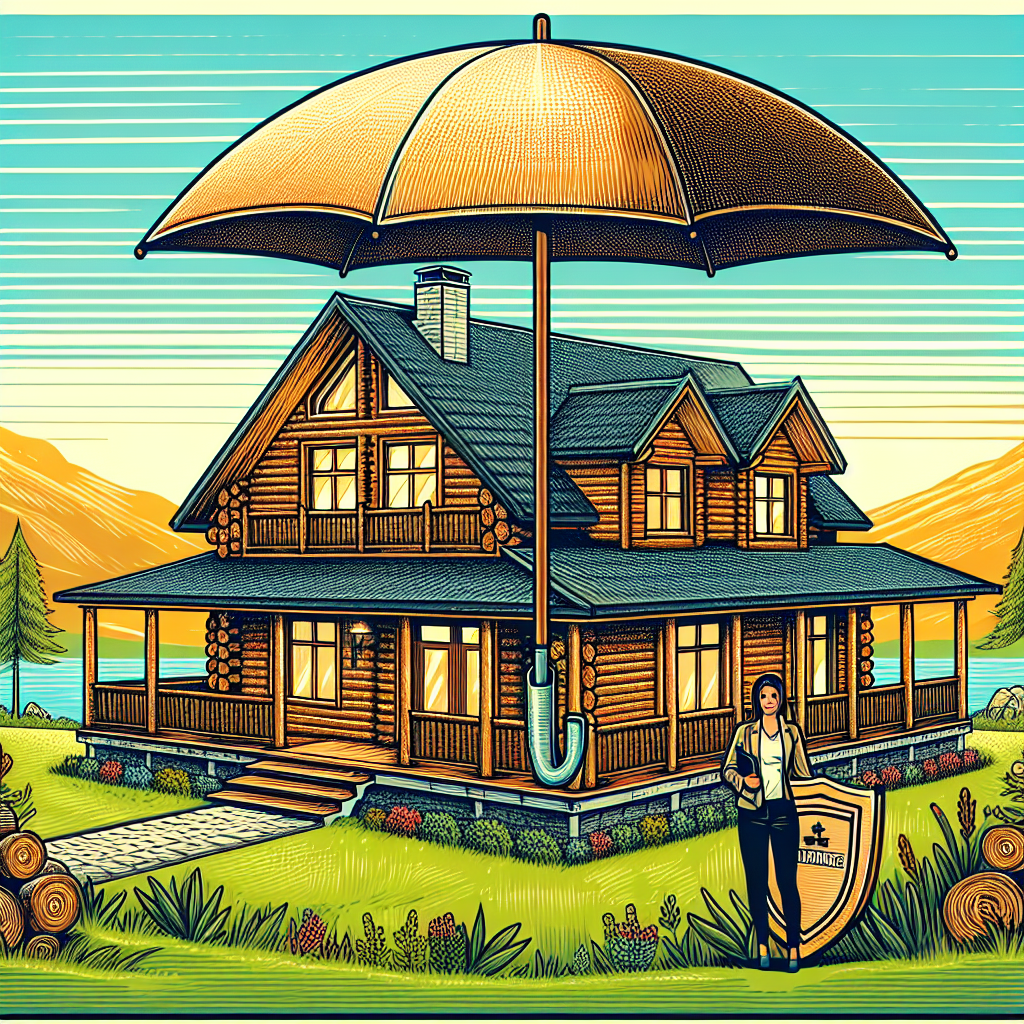Filed under Home Insurance on
Top Log Home Insurance Companies for Optimal Coverage

Homeownership comes with its share of challenges, especially when your sanctuary is a log home. These stunning and rustic dwellings offer unique charm and comfort, but they also require specialized insurance coverage. Understanding which log home insurance companies provide optimal coverage is crucial for ensuring you’re protected against potential hazards specific to these structures. This guide delves into top log home insurance providers, exploring their offerings to help you make an informed decision.
Understanding Log Home Insurance
Before diving into the top companies, it's important to grasp what log home insurance encompasses. Unlike traditional home insurance policies, log home insurance addresses specific risks associated with log structures such as fire susceptibility, maintenance challenges, and pest infestations. Most insurers classify log homes as non-standard dwellings, necessitating specialized policies that weigh the particular risks these homes face.
Key Features of Log Home Insurance
- Comprehensive fire protection due to increased flammability risks
- Coverage for structural repairs and maintenance
- Protection against water damage, especially for homes near natural water bodies
- Pest control coverage for termites and other wood-boring insects
Top Log Home Insurance Companies
1. State Farm: Comprehensive Protection and Peace of Mind
State Farm is renowned for providing robust insurance solutions, making it a viable option for log home owners. Their coverage includes a broad range of risks specifically tailored to log homes. With State Farm, homeowners enjoy extensive protection against weather-related damage, fire, and theft. They also offer personalized service through a wide network of agents, ensuring that policyholders receive guidance that fits their unique needs.
One standout feature is State Farm's extensive range of endorsements, allowing homeowners to customize policies further to meet individual requirements. With financial stability and competitive premiums, State Farm remains a leading player in the log home insurance market.
2. Farmers Insurance: Tailored Policies for Unique Homes
Farmers Insurance stands out as an excellent choice for log home insurance due to its tailored policies and commitment to meeting the unique needs of homeowners. Their policies are adaptively structured, taking into account the distinctive features of log homes. Farmers provide coverage against natural disasters, structural damage, and liability protection to guard against accidents on the property.
Moreover, Farmers Insurance is praised for its proactive customer service, ensuring policyholders are well-informed about their coverage options. Their emphasis on risk assessment allows homeowners to enjoy peace of mind knowing they’re adequately protected.
3. USAA: Exclusive Coverage for Military Families
For military families looking for log home insurance, USAA offers a significant advantage with well-rounded coverage that aligns with their specific needs. Although USAA’s membership is exclusive to military members and their families, the quality of service and specialty coverage options for log homes make it a noteworthy mention.
USAA provides extensive protection against theft, fire, and water damage, ensuring comprehensive coverage for log home owners. The company is also known for its competitive pricing and comprehensive claims process, making it a preferred choice among eligible homeowners.
4. Foremost Insurance: Specialty Coverage for Non-Standard Homes
Foremost Insurance specializes in covering non-standard homes, including log homes. Their policies are designed to address specific challenges such as fire hazards, pest invasions, and weather-related risks. Foremost’s experience in this niche market allows them to offer customized solutions that cater to the unique aspects of log home living.
The company is also recognized for its flexible coverage options and affordable rates. By focusing on non-traditional homes, Foremost offers unparalleled expertise for log homeowners in search of reliable coverage.
5. Allstate: Broad Coverage Network and Flexibility
Allstate delivers an attractive choice for log home insurance with its wide network of agents and capacity for customization. Homeowners benefit from a vast selection of coverage options that can be tailored to fit the distinct needs of log homes. This includes enhanced fire protection, liability coverage, and damage repair.
Additionally, Allstate’s multitude of discounts, such as safe home and claim-free rewards, offers homeowners ways to reduce premiums significantly. Their innovative tools and resources empower homeowners to understand and manage their insurance policies effectively.
Factors to Consider When Choosing Log Home Insurance
Selecting the right log home insurance company involves more than just picking a reputable name. Here are some essential factors to consider:
1. Geographic Location
The location of your log home greatly impacts the type of insurance you need. Homes in wildfire-prone areas need robust fire coverage, while those in regions with heavy rain might require additional flood protection. Always choose a policy that comprehensively covers the specific risks associated with your locality.
2. Policy Flexibility and Customization
Not all log homes are the same; thus, flexibility in policy options is crucial. Look for insurance providers that offer customizable policies, allowing you to add riders and endorsements to address specific needs like sewer backup, debris removal, and personal possessions.
3. Financial Stability of the Insurer
The financial health of an insurance company is a critical consideration. Opt for insurers with strong financial ratings as they are more likely to handle claims effectively. This ensures timely payout in the event of a loss, securing your financial stability.
4. Customer Service and Claims Process
Quality customer service and a streamlined claims process are vital when selecting an insurance provider. A company that handles claims efficiently without unnecessary delays enhances your experience, offering reassurance during stressful times. Reading customer reviews and third-party ratings can provide insight into the service quality of potential insurers.
Industry Trends in Log Home Insurance
Log home insurance, like the broader insurance industry, is evolving with changing technology and consumer demands. Some of the current trends shaping this niche include:
1. Smart Home Technology Integration
Insurance companies are increasingly offering discounts for integrating smart home technologies. Devices like smoke alarms, water sensors, and security systems not only enhance home safety but also reduce the likelihood of filing a claim. Insurers favor this technology, as it ultimately leads to fewer payouts.
2. Climate Change Considerations
As climate change continues to impact weather patterns, the insurance industry is adapting. Many companies now offer more comprehensive coverage options for natural disasters due to the increasing frequency and severity of events like wildfires, hurricanes, and floods.
3. Personalized Insurance Policies
There is a growing trend towards personalized policies using data analytics and AI. Insurance companies can now offer more accurate premium quotes and tailored coverage options that reflect individual risk profiles, making insurance more precise and fair for homeowners.
Expert Opinions on Log Home Insurance
Insights from industry experts can guide you in selecting the right insurance provider. Experts emphasize the importance of understanding policy exclusions and making sure you have adequate coverage levels. According to John Smith, an insurance analyst with over 20 years of experience, "Homeowners should never underestimate the impact of natural disasters and must ensure their policy adequately covers rebuilding costs, taking inflation into account."
Additionally, speaking with a trusted insurance advisor can provide clarity on complex policies and help identify coverage gaps. Such expert guidance is invaluable in navigating the intricacies of log home insurance.
In conclusion, finding the right log home insurance requires careful consideration of your home’s unique attributes and potential risks. By selecting a provider that offers comprehensive coverage, flexibility, and excellent customer service, you can ensure your log home is well-protected. This keeps your rustic dream unhindered, even in the face of unforeseen circumstances.



